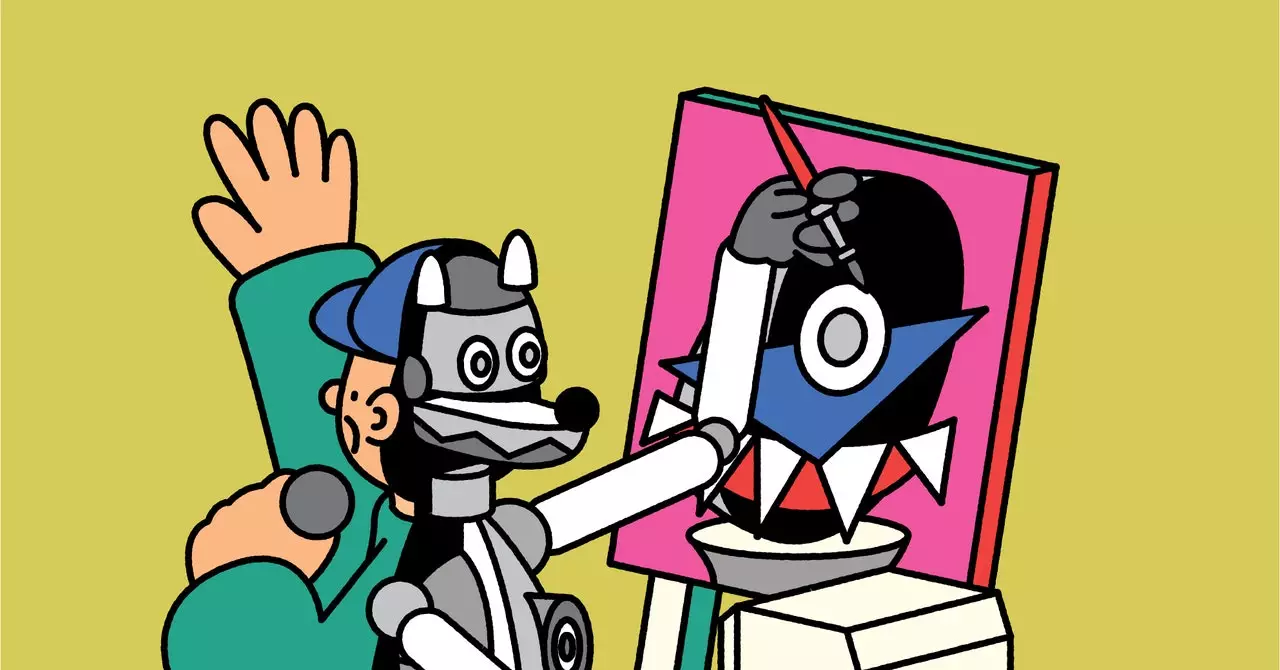The advent of Artificial Intelligence (AI), particularly in the form of language models like ChatGPT, has spurred considerable discourse regarding its impact on human ingenuity and creativity. While many apprehensions revolve around job displacement and the erosion of artistic nuance, there exists a counter-narrative that suggests a burgeoning potential for human creativity alongside these technological advancements. This article aims to explore how this coexistence may manifest, utilizing the genre of hip-hop as a unique framework to illustrate the symbiosis between AI and artistic expression.
The concerns surrounding AI’s intrusion into creative domains are not trivial. Artists, musicians, and writers often perceive these innovations as threats to the very foundation of their work—time, emotion, and a profound understanding of the human condition. For example, the recent proliferation of AI-generated music has left many questioning the authenticity and originality of artistic endeavors. The line that once separated human creativity from machine-generated output is becoming increasingly blurred, leading to fears that machines may outpace the craftmanship honed over decades by artists.
However, it is crucial to recognize that the introduction of AI can also pave the way for novel avenues of creativity. The music industry is already witnessing AI’s foray into genres like hip-hop, yielding new forms of expression that challenge traditional artistic routes. As we advance into 2025, the cultural landscape will likely see more artists embracing AI as a collaborator rather than a competitor, fostering new artistic paradigms within hip-hop and other genres.
In embracing AI technology, a segment of the music community might adopt a strategy of “full embrace.” This perspective acknowledges the potential for AI to generate vast amounts of music quickly, opening doors to soundscapes that were previously limited by human capabilities. For instance, AI-driven algorithms can curate and produce music that resonates with listeners, elevating human experiences through sound. While this approach may lead to less hands-on musical creation, it does provide room for human roles in aspects like curation and contextualization.
The neo-influencer culture will thrive on this interaction between AI-generated music and human commentary. Just as social media influencers have reshaped content consumption, a new breed of critics and curation specialists will emerge, guiding audiences through the maze of AI-driven creations. This may result in a booming industry where evaluation and commentary on AI music becomes just as valuable as the music itself, fostering a deeper appreciation for both the technology and the artistry behind it.
Another avenue that will likely emerge in the hip-hop scene is the hybrid model of creativity, wherein traditional human artistry intertwines with AI technological aid. Musicians are already experimenting with AI to create reimagined takes on classic tracks, allowing for humor and innovation in unexpected ways. Artists like 50 Cent have publicly expressed interest in the playful remixes generated by AI, showcasing the genre’s adaptability and openness to experimentation.
This fusion could also give rise to intriguing concepts such as AI-assisted battle rap, where algorithms analyze and respond to human verses in real-time. Imagine a rapper teaming up with an AI partner, exchanging bars, hooks, and beats, thus redefining the collaborative nature of hip-hop. Such innovations could open doors for countless subgenres, blending creativity with computation in fascinating and unpredictable ways.
As AI-generated content grows in volume, an unexpected yet likely outcome is the resurgence in value for original, human-made music. As society grapples with the omnipresence of AI creations, the relationship to classical art forms—especially one as culturally rich as hip-hop—will evolve. The overwhelming presence of AI in our creative spaces will spotlight the human-made relics, leading to a newfound appreciation for their rarity and authenticity.
Similar to the retro-tech movement that celebrates old technologies, musical historians, and enthusiasts will likely champion the preservation of hip-hop’s origins. This could result in financial opportunities for artists who laid the groundwork for the genre but may have struggled to find economic success in their time. By valuing these foundational works, we can elevate hip-hop to its rightful place among high art.
Ultimately, the relationship between AI and creativity is complex and multifaceted. While concerns about authenticity and displacement are valid, it is imperative to approach this evolving dynamic with an open mind. As we step into 2025, we can anticipate a transformative cultural shift where human creativity, supported and enhanced by AI, will set the stage for a vibrant and enriched artistic landscape. In this convergence, hip-hop will serve as a potent symbol of resilience, adaptability, and innovation, helping us redefine what it means to create in the age of technology. The future may hold untold surprises, but fostering collaboration between human introspection and machine efficiency could illuminate the path towards a brighter artistic horizon.

